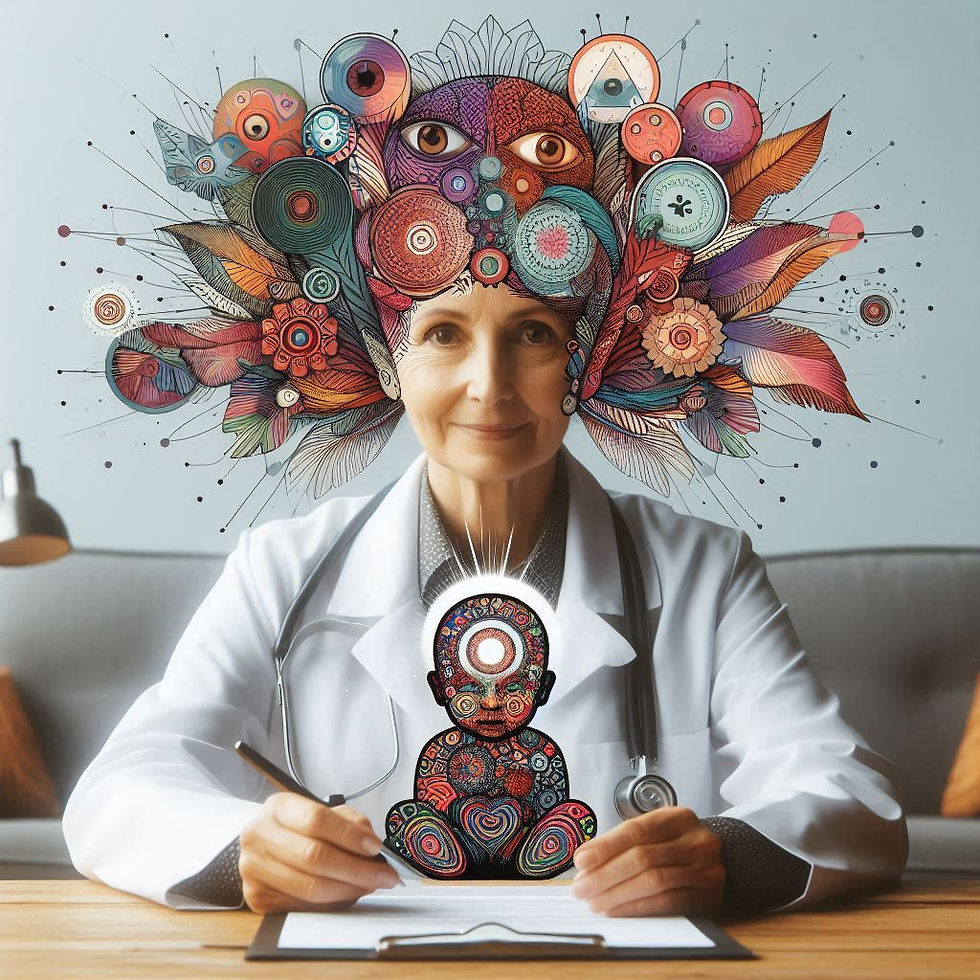PsyD Child & Family Psychology Multicultural Purpose
- Feb 10, 2024
- 5 min read
Updated: Jun 28, 2024
XXXX International University is my top choice because the program educates clinical psychologists through a curriculum based on the integration of theory, research, and practice. Clinical experience in the field is especially important to me. The campus offers small classes and one-on-one attention from professors and a more intimate educational experience. Alliant’s emphasis on social and cultural diversity within the student cohort and the PsyD education is also important for me. Another key factor is that the PsyD program has full accreditation from the Commission on Accreditation of the American Psychological Association (APA), which will provide me more opportunity in the future.

In my research for a suitable graduate program, I was thrilled to learn that Professors XXXX and XXXX both taught at XXXX International University. Professor XXXX has numerous articles related to the trauma of children and adolescents. "Community Based Acute Post-Traumatic Stress Management: A Description and Evaluation of a Psychosocial Intervention Continuum," stands out among the many articles I read during my research of the program. I know I will also learn much from Professor XXXX’s knowledge of the development of psychopathology, and parent and child social perceptions.
The purpose of my study is to investigate the relationship of Internet addiction (IA) with borderline personality features, childhood traumas, depression, and anxiety symptoms among adolescents. The use of the Internet is quite common all around the world, especially among teenagers and has increased exponentially over the past decade. Adolescents spend their entire lives connected online, from schoolwork, socializing, shopping, playing games, and entertainment. This online connectivity can become obsessive and problematic. It can become a characteristic symptom of excessive Internet use and associated as a behavioral addiction that has been called a computer addiction, compulsive Internet use, pathological or problematic Internet use (PIU). Video games and social media overuse in adolescence has become an increasingly studied area over the last decade. In recent years, researchers have suggested that Internet addiction may be comorbid with psychological symptoms such as mood, depression, and anxiety symptoms.

In my dissertation research, I would like to investigate how child trauma and borderline personality disorder features in adolescence can have a correlation with Internet addiction. My hypothesis is that childhood trauma, particularly childhood physical neglect, and emotional and sexual abuse have a significant effect on borderline personality disorder that can be associated with risk of excessive Internet use. From my research, the essential features of borderline personality disorder have some differences between adolescents and adults. The adolescents have more likely “acute” symptoms such as impulsive, self-damaging behavior, inappropriate anger, fear of abandonment, identity disturbance, feeling of emptiness, and dependency on specific relationships to maintain a sensed identity. Borderline Personality Disorder in adolescence has a high psychiatric comorbidity and low psychosocial functioning.
Childhood traumas were also found to be related to substance addiction as well as behavioral addictions such as gambling. However, from my research, there are few studies that investigated the association between childhood traumas and Internet addiction. In my research, I have also found a relationship between Internet addiction and impulsivity which is commonly seen among those with borderline personality disorder. The link between borderline personality disorder and addiction is not surprising because both have negative emotionality and affective instability, and both are impulsive. In my future research, I want to carefully evaluate the variables of the individuals who were traumatized in childhood and may have an elevated risk of borderline personality disorder, depression, anxiety symptoms and have Internet addiction psychopathology. There are only a few studies that directly evaluate the association between Internet addiction and borderline personality disorder.

Traumatic childhood experiences, depression, anxiety, and gender may have important effects on Internet addiction risk and borderline personality disorder, so I want to consider borderline personality disorder together with these variables. Since adolescents with features of borderline personality disorder may have negative emotions, instability, depression, anxiety, fear of abandonment, identity disturbance, which may relate with child trauma, they might find easier to interact online with others anonymously rather than the engage contact in real life. The reason for this finding may be that adolescents with trauma, negative emotions, such as anxiety or depression, may use the Internet to relieve these feelings both internally and externally. The Internet may provide an appropriate place for adolescents with features of borderline personality disorder or child trauma to dissociate from the real world, to help manage their negative emotions. I also can investigate whether any coping styles such as avoidant or emotion-focused coping or possible psychological defense mechanism moderate in the relationship between impulsivity, negative emotions, instability, and Internet addiction.
To investigate my hypothesis, we can use Internet addiction scale (IAS), Childhood trauma questionnaire (CTQ-28), Beck Depression Inventory, and Beck Anxiety Inventory, Childhood Interview for DSM-4 borderline personality disorder, which is the first interview-based measure of adolescents Borderline Personality Disorder And shows good reliability and validity. Internet addiction is the complicated, actual, and dynamic topic of the day.
I am interested in the Child and Family (CFT) track in the PsyD program. My end goal is to become a licensed clinical psychologist for children, adolescents, and couples. I am especially interested in children. My friends, family, and colleagues have noted my ability to listen, exhibit empathy, connect emotionally, and encourage--necessary characteristics to work with children. The opportunity to work 50 percent in the field will allow me to focus and deeply learn how to function as a clinical psychologist. I chose the CFT track because of my experience as a teacher and counseling volunteer. Children are the most vulnerable part of our society and often suffer from anxiety, depression, and other mental issues. We need more professional experts who can help with these issues to facilitate better lives. A child's life is far too scripted nowadays with school, sports, friends, extracurricular activities, and family.
The adolescent period has a reputation for being fragile, less resilient, and more engulfed. In one report, the Child Mind Institute found that diagnosed anxiety disorder only gets treatment in about 20% of young people. It is hard to quantify behaviors related to anxiety and depression like non-suicidal self-harm, and they are intentionally secretive. Being a teenager today is an exhausting full-time job that includes schoolwork, managing a social-media identity, concern about career, and friends. Parents can easily lose contact with children and enter unproductive conflicts. It is hard for many parents to understand how much of a teenager's emotional life is lived within the small screens on their phones. For adolescents it is hard to see their own flaws or vulnerability, and for parents, the idea that their child has depression or anxiety or is self-harming can feel like a failure on their parts. When in this crisis, it is not enough to treat just the child, we should consider the whole family dynamic.
My purpose in this track is to understand how to work with children who have issues with addiction, depression, anxiety, suicide ideation, abuses, childhood trauma, other mental health issues. I want to become a source of strength, hope, empowerment to recover, repair, heal their life and relationship with family and society as whole by exploring and identifying from all sources of wisdom in science and therapy to support their path to recovery.
PsyD Child & Family Psychology Multicultural Purpose






Your statement already carries the weight of deep purpose, intellectual maturity, and a clear professional identity. What stands out most is the coherence between your academic interests, your proposed research, and your long‑term clinical goals—something many applicants struggle to articulate. You demonstrate not only what you want to study, but why it matters and how it connects to the populations you hope to serve.
A few strengths rise to the surface immediately:
🌟 A strong sense of mission
Your commitment to children and adolescents is not superficial or generic. You ground it in lived experience—as a teacher, a volunteer, and someone consistently recognized for empathy and emotional attunement. That gives your motivation authenticity. It’s clear you’re not pursuing a PsyD for prestige or…